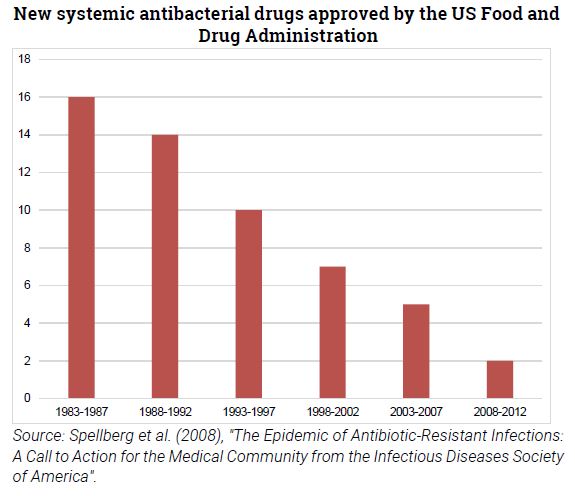Trésor-Economics No. 215 - Economic measures to counter antimicrobial resistance
Human and animal consumption of antibiotics is leading to bacteriological mutations that threaten to make current drugs ineffective in the treatment of certain diseases. In the coming decades, increased antibiotic resistance could cause several million deaths worldwide annually and drive down economic activity by up to 0.8 points of GDP per year in developed countries between now and 2050.
This health risk requires a global coordinated response, as called for by the G20. Where possible, consumption of existing antibiotics must be reduced and diversified. In addition, research into new antibiotics that are effective against potentially resistant bacteria must be encouraged more strongly. Current R&D spending in this area is insufficient given the risk. In the pharmaceutical industry, intellectual property law provide inventors with returns that depend on the medical service provided, over a specific time-period starting from the date a patent is filed or the marketing authorisation is granted. These rules are less suitable when it comes to new antibiotics as they may be of limited immediate use due to currently available treatments, and the date when they will become needed is unknown.
To make up for the lack of R&D to combat antimicrobial resistance, , patent rules for this class of drugs need to be harmonized between countries in order to provide protection for new molecules based on their effective marketing date.
The feasibility of a worldwide reward fund to compensate innovation in the field of antimicrobial resistance should be discussed. Under such a scheme, innovators would transfer their intellectual property rights in exchange for a predetermined reward. This would have the advantage of providing investors with the certainty of a minimal return for discoveries, but would also mean that new drugs could be immediately released in the most effective manner, without the social loss associated with the period of exclusive rights granted by the patent.
Such a fund could be used to test a reward system for other types of innovation for which the current patent-based incentive system does not in and of itself provide a socially optimal level of R&D investment. This appears to be the case, for example, in the area of efforts to combat the consequences of global warming.
